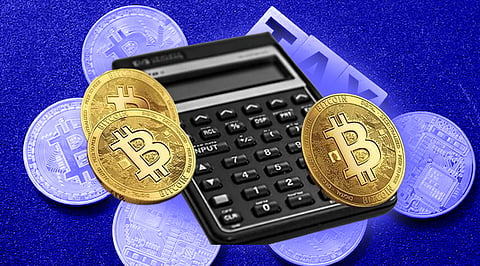

Cryptocurrency in India has been a matter of debate and discussion for a long time. After prolonged speculations about the country banning all crypto tradings and investments, the Indian Finance Ministry has finally concluded to impose cryptocurrency taxation. Although bringing the Indian crypto market under regulations is a good move, investors are upset about the huge tax rate imposed on all gains. Yesterday, the proposed bill was passed in the parliament, authenticating the rollout of crypto taxation from April 1, today.
According to the new cryptocurrency taxation rules, investors will have to pay 30% to the government on their virtual digital asset gains. Finance Minister Nirmal Sitharaman proposed the regulations in Union Budget 2022-2023, which has now taken shape into a law. Already when the Indian crypto market is suffering due to the overall price fall, the cryptocurrency taxation came as a blow to many investors. Besides the 30% taxations on crypto gains, the ministry has also provided a provision for Tax Deducted at Source (TDS) on payments made in relation to the transfer of digital assets at the rate of 1%. The most shocking revelation came days after the announcement of initial cryptocurrency taxation. On March 20, the Finance Ministry put out a clarification stating that loss from the transfer of one crypto can't be set off against any other income. Further, the infrastructure costs for mining cryptocurrency in India cannot be seen as the cost of acquisition.
Amidst the ongoing transformation to bring virtual assets under regulation, the Indian crypto market has many lingering doubts. To begin with, crypto investments won't be brought under taxation according to the new law. Rather, crypto profits gained over the year will be taxed at 30%, the highest tax bracket since the Indian authorities see digital asset profits similar to a lottery win. For example, if you are buying cryptocurrency in India for INR 10k and sold it for INR 40k, then you are bound to pay 30% tax for the profit gained, INR 30k. According to this calculation, you will be paying INR 9k to the government.
Besides, all the crypto transactions will be subjected to a 1% taxation under TDS. Although trading at international exchanges could help evade the regulations, it could be scrutinized by the Indian authorities.
Even when the cryptocurrency investors pay 1% TDS, they have a provision to claim for refund on transactions involving loss. Remarkably, the TDS limit per year is INR 50,000 for individuals and HUFs. Besides, cryptocurrencies that are exchanged as gifts are also taxable. If you receive a cryptocurrency gift from now on, please file them for taxability.
When the cryptocurrency taxation and the clarification came out, many experts suggested that Indian investors withdraw their money from the market. However, now, crypto investors are looking for diverse ways to tackle the highest tax bracket. For example, investors facing loss can benefit from selling by loss before April 1, and do loss claims.
Long-term investors seem unscathed with the cryptocurrency taxation as they have already averaged out their costs at the present rate. On the other hand, the speculations around the digital rupee is also making rounds across the country.
Join our WhatsApp Channel to get the latest news, exclusives and videos on WhatsApp
_____________
Disclaimer: Analytics Insight does not provide financial advice or guidance. Also note that the cryptocurrencies mentioned/listed on the website could potentially be scams, i.e. designed to induce you to invest financial resources that may be lost forever and not be recoverable once investments are made. You are responsible for conducting your own research (DYOR) before making any investments. Read more here.
